Did you know that dried herbs pack up to three times more antioxidants than their fresh counterparts? That’s right—your humble spice rack holds a treasure trove of health benefits most of us overlook! Whether you’re looking to boost your immune system, support digestion, or simply add more nutrients to your meals, dried herbs can deliver big results in small doses.
What makes them so powerful? When herbs are dried, their natural compounds become more concentrated, amplifying their medicinal properties. Plus, they’re incredibly versatile and convenient. You don’t have to worry about them wilting in the fridge or losing flavor after a few days. A pinch here, a sprinkle there, and you’re all set.
But which ones are truly worth adding to your wellness routine? Not all dried herbs are created equal, and some offer unique health-boosting powers that go far beyond seasoning your soup. Curious? Stay with me—I’ve rounded up ten amazing dried herbs that can positively transform your health, along with practical ways to use them every day. Get ready to discover how a little flavor can go a long way in nurturing your body!
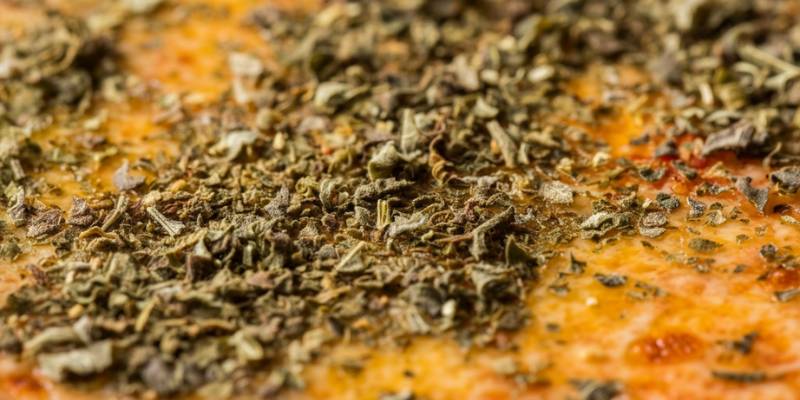
1. Dried Basil
Basil isn’t just for pesto; this aromatic herb packs serious health benefits. It’s loaded with antioxidants like beta-carotene and lutein, which help neutralize harmful free radicals in your body. These compounds can reduce the risk of chronic diseases like heart disease and some cancers. Basil also has natural anti-inflammatory properties, making it great for supporting overall health.
How to Use It
Sprinkle dried basil on tomato-based dishes, such as sauces, soups, and pizzas for a delicious boost. For a soothing remedy, steep a teaspoon of basil in hot water and enjoy it as a warming herbal tea.
Discover why dried basil is a must-have in your kitchen with these 10 astonishing reasons to use dried basil for health and flavor.
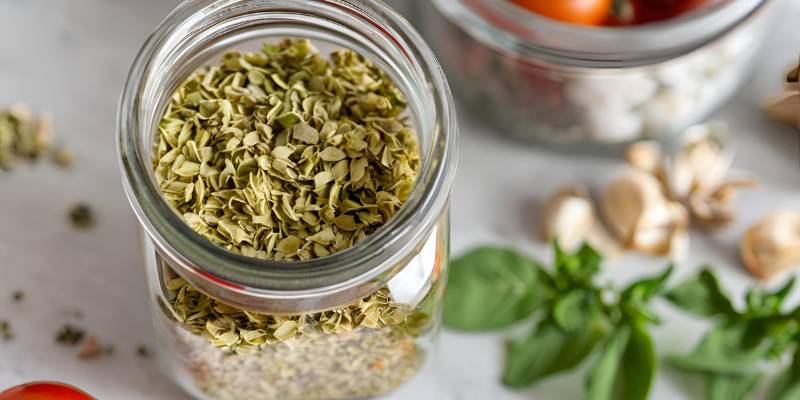
2. Dried Oregano
Known for its bold, earthy flavor, oregano is a powerhouse of nutrients. This herb contains compounds like thymol and carvacrol, which have antimicrobial properties. These can help fight off harmful bacteria and viruses, making it an excellent immune booster. Oregano is also rich in antioxidants and vitamins K and E, which support bone health and glowing skin.
How to Use It
Use dried oregano in your marinades, sauces, or as a seasoning for roasted vegetables. Feeling under the weather? Brew oregano tea by steeping a teaspoon in hot water—it’s a simple, effective way to fight colds and improve respiratory health.
Elevate your dishes effortlessly by exploring the 7 wonders of cooking with dried oregano and its incredible benefits
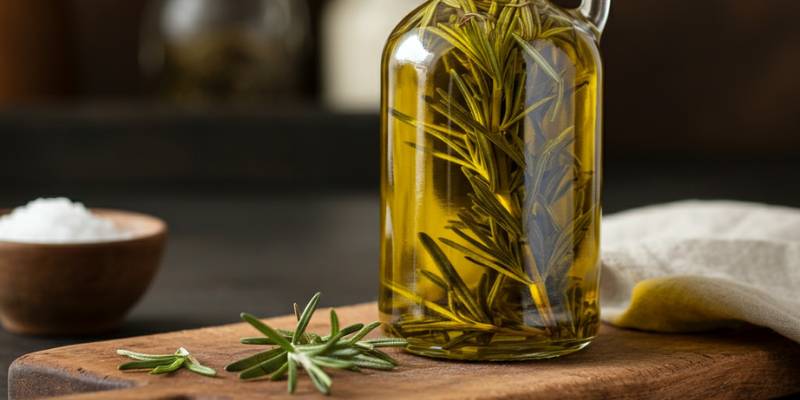
3. Dried Rosemary
Rosemary has long been associated with improving cognitive function. Studies suggest it may enhance memory and concentration due to its compounds like rosmarinic acid. Additionally, rosemary improves circulation and contains anti-inflammatory properties that support joint health.
How to Use It
Infuse dried rosemary into olive oil and drizzle it over salads or bread. It’s also fantastic when roasted with potatoes or vegetables. For a refreshing twist, add a sprig of dried rosemary to warm water for a light herbal infusion.
Uncover the 5 magical reasons to love dried rosemary and how it can transform your cooking and well-being.
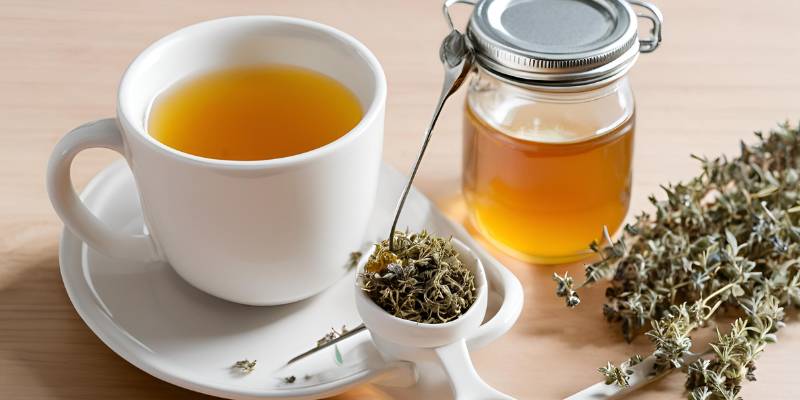
4. Dried Thyme
Dried thyme is a nutritional powerhouse packed with vitamins A and C. Its antimicrobial properties make it incredibly effective for fighting respiratory infections and soothing sore throats. Thyme has also been shown to promote healthy skin and reduce breakouts when used topically.
How to Use It
Season roasted or grilled meats with dried thyme for a rich, savory flavor. You can also steep it in hot water and honey to create a natural cold remedy. Feeling creative? Add a pinch to your omelets or casseroles for an aromatic boost.
For clever ways to elevate your dishes with dried thyme, check out “Dried Thyme: 10 Powerful Cooking Hacks” and transform everyday meals into culinary masterpieces!
5. Dried Sage
Sage isn’t just for Thanksgiving stuffing. This herb is celebrated for its ability to enhance brain health. Research shows it may improve memory and cognitive performance, especially in older adults. It also supports oral health by reducing inflammation in the gums and fighting bacteria.
How to Use It
Add dried sage to hearty dishes like casseroles, soups, or homemade sausages. For a unique twist, brew sage tea for a warm, earthy drink. You can also use it as part of herbal smudging rituals for aromatic benefits.
Discover the 9 terrific culinary secrets of dried sage and bring bold flavors and health benefits to your meals.
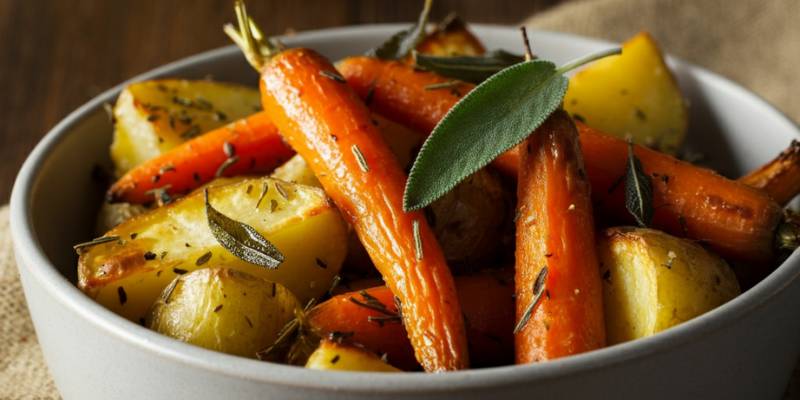
6. Dried Peppermint
Peppermint is a cooling herb that’s fantastic for digestion. Its menthol compound helps relax the gastrointestinal muscles, easing bloating, gas, and stomach discomfort. It’s also known to reduce the frequency and severity of headaches thanks to its calming properties.
How to Use It
Peppermint tea is a classic choice—simply steep a teaspoon of dried peppermint leaves in boiling water. You can also mix it into baked goods for a minty twist or blend it with essential oils for DIY aromatherapy.
Explore the 10 uplifting truths about dried peppermint and learn how it can refresh your recipes and health
7. Dried Chamomile
Chamomile is the ultimate stress-relieving herb. It promotes relaxation, reduces anxiety, and encourages better sleep. But beyond its calming effects, chamomile offers anti-inflammatory compounds that can soothe an upset stomach or irritated skin.
How to Use It
Brew dried chamomile flowers into a calming tea before bed. You can also use it as an ingredient in homemade skincare products, such as face tonics or healing salves.
Delve into the 8 intriguing facts about dried chamomile and uncover its soothing benefits and versatile uses.

8. Dried Parsley
Often underrated, parsley is loaded with vitamins A, C, and K, which support healthy immunity, strong bones, and clear vision. It’s also a natural detoxifier, aiding in kidney health and reducing bloating.
How to Use It
Sprinkle dried parsley as a garnish for soups, stews, and salads. You can also blend it into smoothies or green drinks for a nutrient boost. Have some fresh lemons? Pair parsley with them for a detoxifying tea.
Learn about the 7 great health boosts from dried parsley and how it can enhance your meals and well-being
9. Dried Turmeric
Turmeric has been used for centuries in Ayurvedic medicine for its powerful anti-inflammatory and antioxidant properties. Curcumin, its active compound, aids in reducing joint pain and improving brain health. Turmeric is also an immune-boosting superstar.
How to Use It
Whisk a pinch of dried turmeric into warm milk with honey for a soothing golden milk latte. You can also use it in curries, stir-fries, or even baked goods for a bold flavor and vibrant color.

10. Dried Ginger
Ginger is a culinary gem and a medicinal marvel. It’s excellent for easing nausea, improving digestion, and boosting circulation. Additionally, its anti-inflammatory compounds can help reduce muscle soreness after exercise.
How to Use It
Brew dried ginger into a tea with lemon and honey—perfect for cold mornings or upset stomachs. You can also add it to stir-fries, soups, or desserts for a spicy kick.
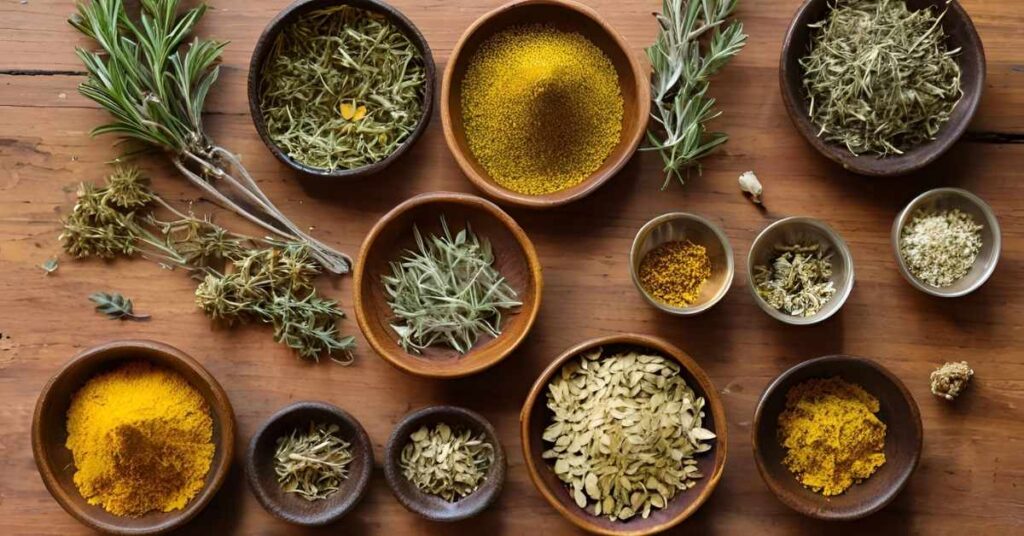
Discover the 6 fascinating perks of dried mushrooms and elevate your dishes with their rich flavor and nutrition
Closing Thoughts
By incorporating these amazing dried herbs into your routine, you’re not just adding flavor to your meals—you’re actively supporting your well-being. From boosting immunity with oregano to calming stress with chamomile, these pantry staples pack a nutritional punch that can improve your health in more ways than one.
Start small. Pick one or two dried herbs to experiment with this week. Sprinkle some basil over your pasta, or brew a calming chamomile tea before bed. These little actions can add up to big wellness benefits over time. Have a favorite herb you swear by? Don’t keep it a secret—share your recipes and tips, and inspire others to explore the healing power of dried herbs!
“Looking to explore another versatile herb? Check out our guide to the 7 Brilliant Ways Dried Dill Enhances Meals and discover how this pantry staple can elevate your cooking game!”
Stay connected with us!
- Follow us on Instagram: @RoastedKitchen25 for daily cooking inspiration.
- Subscribe to our newsletter for exclusive recipes, expert tips, and kitchen hacks straight to your inbox!
FAQ Section: 10 Amazing Dried Herbs for Better Health
1. Are dried herbs as nutritious as fresh herbs?
Yes, dried herbs can be even more nutritious than fresh ones in certain ways. When herbs are dried, their beneficial compounds, like antioxidants, become more concentrated. However, some vitamin content (like vitamin C) may decrease during the drying process. Dried herbs are a practical and potent option for boosting health.
2. What’s the best way to store dried herbs for maximum freshness?
Store dried herbs in airtight containers, preferably made of glass, and keep them in a cool, dark place away from sunlight and heat. This helps preserve their flavor and nutritional value. Avoid leaving the lids off or exposing them to moisture, which can cause them to lose potency.
3. How long do dried herbs last before losing their health benefits?
Most dried herbs retain their flavor and benefits for about 1 to 3 years when stored properly. After that, they begin to lose potency. Check for signs like faded color or lack of aroma—these usually indicate the herbs are past their prime.
4. Can I use dried herbs in place of fresh ones? How do I adjust the measurements?
Yes, dried herbs can be substituted for fresh herbs in recipes. Since dried herbs are more concentrated, you only need about one-third of the amount. For example, if a recipe calls for 1 tablespoon of fresh herbs, use 1 teaspoon of dried herbs instead.
5. Are there any side effects to overusing dried herbs?
While dried herbs are generally safe, overusing some (like sage or oregano) in large quantities may cause minor side effects, such as digestive discomfort. Stick to recommended amounts, and consult a healthcare provider if you’re pregnant, nursing, or have underlying conditions before using herbs medicinally.

Food has been at the heart of my life since childhood. My father, a passionate restaurateur, owned and ran Cave Way, a beloved restaurant in Narayanganj, Bangladesh. For 19 wonderful years, Cave Way delighted customers with its warm atmosphere and mouthwatering dishes. It was more than a restaurant; it was a community landmark. When my father passed away, the restaurant’s doors closed, but its legacy lived on in me. As a businessman and food enthusiast, I’ve always felt a connection to the joy and stories that food brings into our lives. Roasted Kitchen is my way of honoring that legacy, sharing my passion, and connecting with others who love cooking as much as I do.

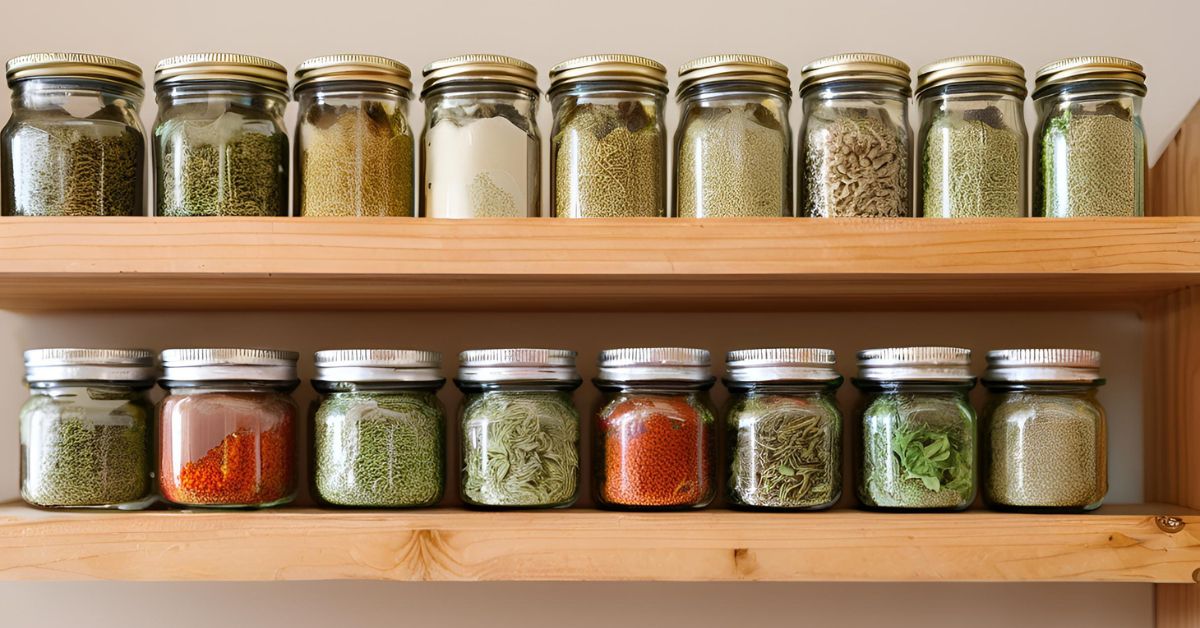








 Subscribe to our free newsletter for tips, tutorials, and insights!
Subscribe to our free newsletter for tips, tutorials, and insights!